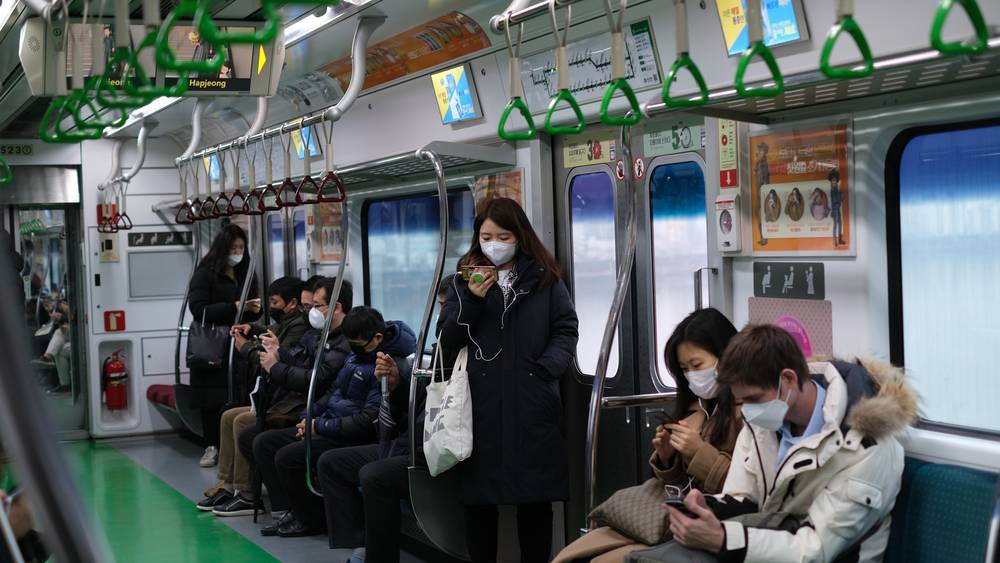Mass Norovirus Outbreak in Namwon City Linked to Kimchi
About 1,000 people in South Korea are suffering from food poisoning linked to kimchi contaminated with norovirus.
Rapid Increase in Cases
Officials in Namwon City, located in south-western South Korea, reported 996 confirmed cases of norovirus on Friday morning. Local media indicated that the number had risen to 1,024 by early Saturday afternoon. This rapid increase in cases highlights the severity of the kimchi norovirus outbreak.
Source of Contamination
Authorities stated that the contaminated kimchi had been distributed through school meals in Namwon City. Consequently, students and staff from 24 schools reported symptoms including vomiting, diarrhoea, and abdominal pains.
Moreover, norovirus, the cause of the outbreak, is a highly contagious virus that can be transmitted through contact with contaminated surfaces and infected individuals. As a result, this has led to the swift spread of the illness among those who consumed the tainted kimchi.
What is Norovirus?
Norovirus is a highly contagious virus that causes gastroenteritis, leading to inflammation of the stomach and intestines. Symptoms typically include severe vomiting, diarrhoea, stomach pain, nausea, and sometimes fever and headache.
These symptoms usually develop 12 to 48 hours after exposure and can last up to three days. Norovirus spreads through direct contact with infected individuals, consuming contaminated food or water, and touching contaminated surfaces.
The virus can survive on surfaces for days, making it easy to transmit in crowded environments like schools and hospitals. Given its rapid spread and severe symptoms, norovirus is often linked to large outbreaks of foodborne illness, such as the current kimchi norovirus outbreak in Namwon City.
Health Response and Investigation
Namwon City officials initiated an epidemiological investigation on Wednesday after the first case was reported the previous day. The number of cases surged quickly, increasing from 153 on Wednesday to 745 by Thursday.
In response, Mayor Choi Kyung-sik announced a “pre-emptive and excessive response” to prevent further spread. This response includes thorough sanitation of affected areas, temporary closure of schools, and widespread public health advisories. Health officials are working to trace the exact source of contamination within the kimchi supply chain to prevent additional cases and protect public health during this kimchi norovirus outbreak.
Detection of Norovirus
Health officials detected norovirus in patients, environmental samples, and some kimchi distributed to schools. The discovery of the virus in various sources confirmed the kimchi norovirus outbreak.
Consequently, Namwon City’s disaster and safety department temporarily suspended the production and sale of products from the implicated company. The company is also voluntarily recalling its distributed products. These measures aim to prevent further cases and ensure the safety of food supplies.
Ensuring Public Safety
Mayor Choi Kyung-sik reassured citizens that all necessary measures are being taken to ensure public safety. The city’s prompt response aims to prevent additional infections and protect the health of residents.
Despite the high number of cases, most people recover from norovirus without needing hospital treatment. However, severe cases can occur, necessitating vigilant health measures. Continuous monitoring and strict hygiene practices are essential to control the kimchi norovirus outbreak and prevent future incidents.
The Unique Flavour of Kimchi
Kimchi, a staple in Korean cuisine, is a fermented cabbage dish known for its unique flavour. The fermentation process involves various lactic acid bacteria, which contribute to its distinct taste and numerous health benefits. These bacteria aid digestion and boost the immune system. However, if not properly handled or produced, fermented foods like kimchi can become contaminated and pose health risks.
Public Health Measures and Future Steps
To prevent future outbreaks, stringent hygiene practices and regular inspections of food production facilities are essential. Moreover, public health education on proper food handling and personal hygiene can significantly reduce the risk of norovirus and other foodborne illnesses. Additionally, implementing strict safety protocols in schools and food establishments can further minimise the chances of contamination. The kimchi norovirus outbreak in Namwon City, therefore, highlights the need for ongoing vigilance and improved food safety standards to protect public health.
References
1. Phillips, A. (2024, July 6). South Korea: Kimchi blamed for mass norovirus sickness. https://www.bbc.com/news/articles/ce58m22ljrro

